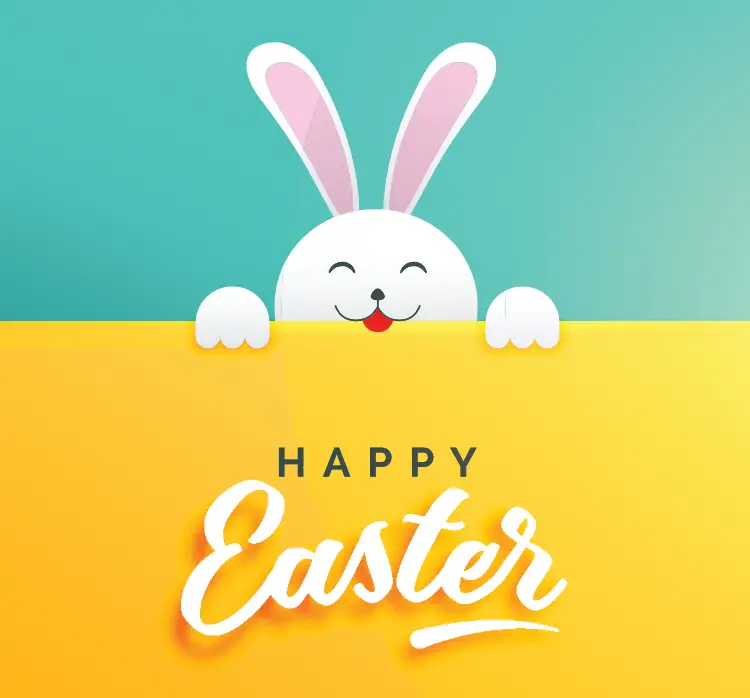
Easter is one of the most important holidays in Christian tradition. It marks the resurrection of Jesus on the third day after he was discovered to be killed; that is the single most important part of the Christian religion.
The resurrection of Jesus, because it marks the key event in Christian belief, is celebrated widely in Western nations.
When is Easter?
It does not happen on the same date every year; instead, Easter always falls on a Sunday sometime between March 22 and April 25. It does not have a specific date in the Gregorian calendar, which is the one that most people around the world use, because of its history.
That means that Easter happens sometime within the same month, but the exact date varies from year to year.
Easter Meaning
What does the word Easter mean?
The word Easter itself refers only to the holiday, but it seems that the word comes from a word in Old German that was the name of the Goddess of Spring.
How different cultures celebrate Easter?
Easter celebrations around the world differ according to culture. Some celebrations rely heavily on religious lore while there are also many secular (non-religious) celebrations. People in the same neighborhood may celebrate together or do different activities as well.
Many people who believe in the Christian teachings of Jesus’ divinity and resurrection attend church services on Sunday morning to learn about the event. They usually go in the morning, leaving the afternoon for other types of celebrations.
For secular families in Western Europe and the United States, Easter is celebrated with different types of fun. Parents can bring their children to see an Easter parade or look for candy in plastic eggs in an Easter egg hunt.
Examples
The following are examples of the word Easter used correctly in a sentence.
- I’m so excited for the Easter celebrations this year!
- Are you going to mass on Easter Sunday? I think the message will be very moving.
- My daughter is performing in the Easter parade tomorrow morning so I will need to take video to send to my parents and extended family.
Dialogue
When the Easter holiday approaches, you might find yourself having a conversation about Easter-related traditions, plans, and events!
Amy: What are you going to do on Easter Sunday?
Max: Hi Amy! I think I’m going to take my family to Easter mass. We usually go because we are religious, and the Easter mass is one of the most important ones of the year. Even if we miss other masses, it’s important to go to this one.
Amy: Oh, that sounds interesting! I don’t know much about going to mass because my family is non-religious. How is Easter mass different from mass on any other Sunday?
Max: Good question! There usually is not a huge difference because our pastor still prepares a sermon and helps us understand more about our religion. Usually, the Easter sermon focuses more on the resurrection of Jesus and what that means about his status as God’s son.
Amy: Oh, I see. So, after the sermon, do you celebrate Easter in another way?
Max: Yes, we do! Our church holds a massive Easter egg hunt, which the parents have to plan far in advance. We buy plastic Easter eggs and put candy in them, then hide the eggs around the church. After the service, all the kids of the church get to run around and find as many Easter eggs as they can!
Amy: Wow, that sounds really fun! I bet your kids will love it.
Max: I think so, too! What are your plans for the Easter weekend?
Amy: Actually, my family and I will go to the Easter parade in the morning. My kids are really interested in seeing the Easter bunny, even if they know the bunny will be a person dressed in a bunny suit.
Max: My kids are the same! It sounds like both of us have great plans for Easter weekend.
Other Words You Can Create
Easter is usually used as a noun to describe the holiday, but can also be used as an adjective. The adjective form of the word is the same (Easter), so do not get confused with words like eastern (the adjective form of east).
Collocations with Easter
Collocations are phrases that are commonly used in conversation and writing. Easter has several collocations, including the following:
Easter egg
These eggs are usually plastic eggs that are stuffed with candy or other small items and hidden for children to find in Easter egg hunts.
They can be reused and decorated if children like them. In some cases, Easter eggs can also refer to real egg shells that are still intact.
These usually have the actual edible portions of the egg removed (egg yolks and egg whites) so the shell can be decorated with paints and other materials.
Easter egg hunt
Egg hunts are a very common celebration for Easter. They are usually meant for children.
The adults will take the aforementioned Easter eggs, stuff them with candy (or other small goodies) and hide them.
Children can then look around for the eggs and keep whatever they find inside them!
Easter basket
Children who participate in Easter egg hunts usually carry around an Easter basket to hold all of their finds.
Easter baskets are often specific colors (pastels, or light creamy colors, of yellows, greens, blues, purples, and pinks are very common).
The baskets can also be lined with fake grass to complete the image.
Easter bunny
The mascot of the Easter holiday is the bunny! The Easter bunny is usually responsible for handing out Easter eggs to children.
Some legends describe the bunny as a figure similar to Santa Claus, who goes around to the houses of all children and brings them Easter eggs, candy, and other small trinkets.
Many candies and Easter treats will show the Easter bunny and his Easter eggs as a symbol of the holiday.
Easter parade
At an Easter parade, many different people, performers, and people dressed in costumes walk down a street in song and dance.
The spectators stand or sit on the sidelines and watch the celebration. Easter parades are common in cities, and may result in roads being shut down to happen.
Almost all Easter parades include an Easter bunny, and parades may be partnered with Easter egg hunts for the children afterwards.
Easter holiday
The entire holiday or vacation surrounding Easter is known as the Easter holiday. It consists of Good Friday,
It consists of Good Friday, Easter Saturday, Easter Sunday, and Easter Monday. In some countries, all of these days are considered public holidays.
Easter Sunday
This is the most important religious day of the Easter holiday. Easter Sunday marks the celebration of the day that Jesus rose from the dead, so most all Christians will attend mass at their church.
Many of the other celebrations (including Easter egg hunts and Easter parades) also occur on this day.
Easter Monday
Easter Monday is the last day of the Easter holiday. In countries that recognize it as a holiday, it marks more secular celebrations such as egg rolling competitions.
Some places continue a suspension of work and school on this Monday.
Phrases related to Easter
Lent
In Christian and especially in Catholic tradition, Lent is a 40-day period in which believers prepare themselves for Easter.
The purpose of the period is to pray, reflect, and repent sins, as well as to practice self-denial. It begins on Ash Wednesday, and many believers choose to give up something during the period as symbol of their dedication to Lent.
Modern sacrifices include abstaining from social media, not eating chocolate, not watching TV, etc.
Holy Week
Holy Week is the week just before Easter. It commemorates the holiday and helps Christians remember the sacrifice of Jesus.
The week is said to have begun with Jesus’ arrival into Jerusalem, include his crucifixion on the cross, and end with his resurrection, indicating that Jesus was divine.
Palm Sunday
The Sunday before Easter, Palm Sunday marks the start of Holy Week and is when Jesus is said to have entered Jerusalem.
It is called Palm Sunday because followers of Jesus placed palm trees in front of him when he walked into Jerusalem.
The Passion of Jesus
The Passion of Jesus or Passion of Christ is the event in Christian lore describing his crucifixion. The event is symbolized by the cross. Good Friday is said to represent that day.
Good Friday
The Friday before Easter Sunday is known as Good Friday. It is the day that Christ is said to have died on the cross.
More for you:
80 Easter Words You Should Know! [Image]
How to Express Good Wishes Using MAY?


























